The politics of the office tea round
- Published
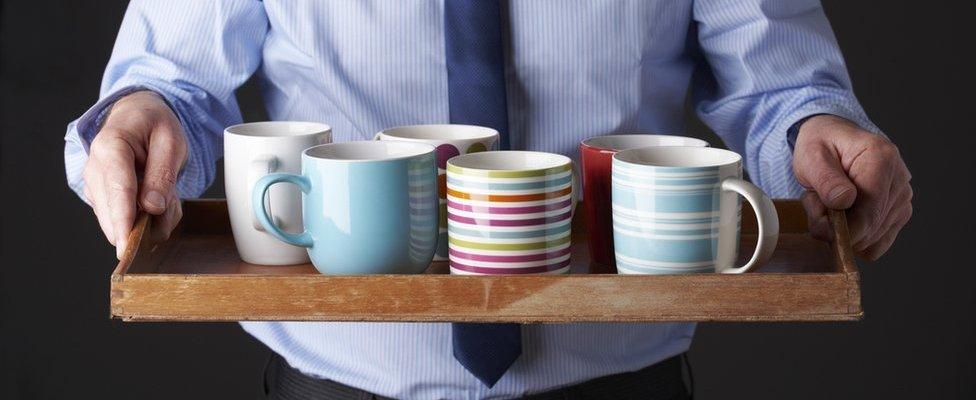
Whose round is it anyway?
Coffee drinking could be overtaking the office tea round as workers search for a caffeine jolt, but the hunt for a clean tea mug still continues in many offices. Freelance journalist Caroline Bullock explores the politics and psychology of the tea round.
According to research, when it comes to countering the afternoon energy slump, office workers are switching off the office kettle and opting for High Street coffee.
It seems the baristas have raised the bar and our expectations, rendering the cracked mugs and amateur efforts from colleagues increasingly redundant. Yet beyond an improved taste and greater dent in the wallet, it's a move with broader implications, notably the threat to the office tea round.
While critics claim the politics and pettiness of this enduring ritual make it irrelevant in the modern workplace, for me it's a process with a purpose.
For a start, office life has always involved a degree of artifice, notably the falsehood that everyone is part of one equitable and harmonious team. It's a mantra crudely reinforced in various ways: the shared corporate values, the away days and secret Santas to name a few.
Dog eat dog
Scratch the surface, however, and you can find that the bonhomie is a little contrived. Interestingly, the tea round offers a much-needed reality check in exposing social hierarchies and gender bias, and shows that a good old-fashioned pecking order is still alive and well.
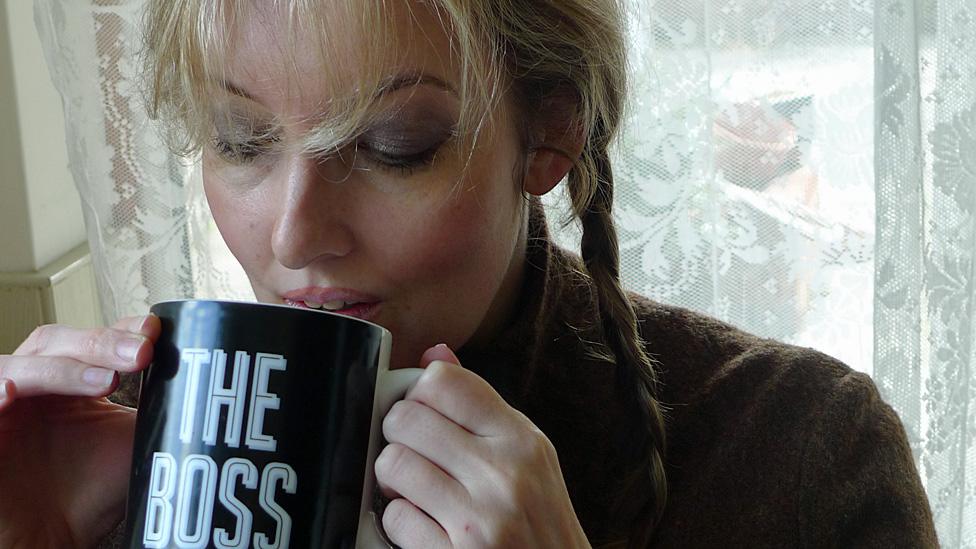
Caroline Bullock - burned by tea round etiquette
It starts with the person who never makes a drink but is always served one, a move that cements their status as someone far too important for such drudgery. Do the same, however, and you're guilty of office life's greatest felony - having ideas above your station.
I speak from experience. New to a demanding role on a newspaper, I appreciated the teas that came on tap, fuelling the pithy headlines and the slog to deadline. Basking in my creative bubble, I didn't have the time or inclination to reciprocate, and figured this was fine as I was following the lead of a male colleague who never returned the favour either.
Two weeks later and the team's patience had expired; the tea round took place and I was excluded. Interestingly, my partner in crime continued to enjoy a steady stream of beverages, while I was left parched and indignant with the stark message that some get away with it and others don't - draw your own conclusions.
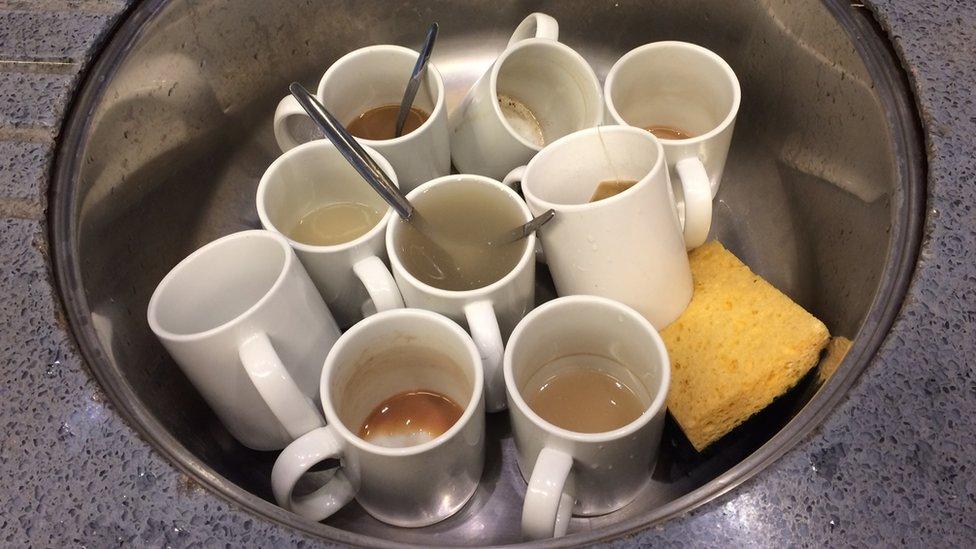
Mounds of mugs are a common sight in offices
Further double standards can arise when it comes to the mess created. Soggy mounds of teabags, unwashed mugs, crusty discarded teaspoons - I'm guilty of it all, but my slovenly habits have tended to attract more comment than comparable misdemeanours from male colleagues and usually from other women.
'Dinosaur attitudes'
For Cary Cooper, professor of organisational psychology and health at Manchester University, this seemingly simple activity reflects the many dynamics in the office around gender and status.
"It's really about the expectations colleagues have of each other and the sociological and psychological factors under the surface," he says.
"I still notice in many tea rounds that while men may help make the tea, it is usually the women that do the washing up, or load the dishwasher.
"If I was to observe a tea round for a month I would be able to tell who gets on best and who is the outsider, as well as the fact that a so-called 'team' is very rarely a team."

Lawyer Grace Bennett had to contend with archaic attitudes from two older gentlemen
And refreshment faux pas can prevail in other professional capacities. Lawyer Grace Bennett at Vista Employer Services recalls how a recent networking event was blighted by "dinosaur attitudes".
"I walked towards the self-service coffee machine and a man in his 60s standing in front of it said to his male colleague, 'Great, now there's a woman here maybe we can get a cup of tea.' I ignored it and assumed he was joking but when I had my drink in my hand he said perfectly seriously: 'Is that drink for me?'
"If I'd been less confident that could have really affected me."

You might also like:

Not surprisingly, where tea rounds still thrive, it seems efforts are being made to avoid potential flashpoints.
A recent mandate introduced at GingerMay PR limits tea making to immediate neighbours to end niggles over time-sapping rounds.
Elsewhere, the process is getting a more technological revamp. For the team at marketing agency No Brainer, a tea round app is solving brew-based arguments by letting an algorithm select whose turn it is at random.
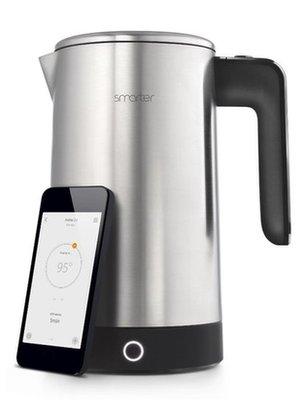
An answer to the UK's productivity puzzle?
Then there's the iKettle, which is controlled remotely via a smartphone app, so you can boil it from your desk.
Christian Lane, the founder of Smarter, the company behind it, says the product saves two days a year in lost productivity physically waiting in the kitchen for it to boil.
Yet while these gadgets breathe new life into a traditional routine, they may struggle to compete with offices that have in-house baristas.
Henry Mizel from office-space booking firm Nomad says these amenities are replacing the water cooler as the office focal point for interaction.
"The better the coffee machine, the more likely people will be to make a booking there. To remain competitive, workspaces are having to cater to all needs, including baristas, who will make you anything your heart desires," he says.
- Published21 December 2016

- Published7 December 2016
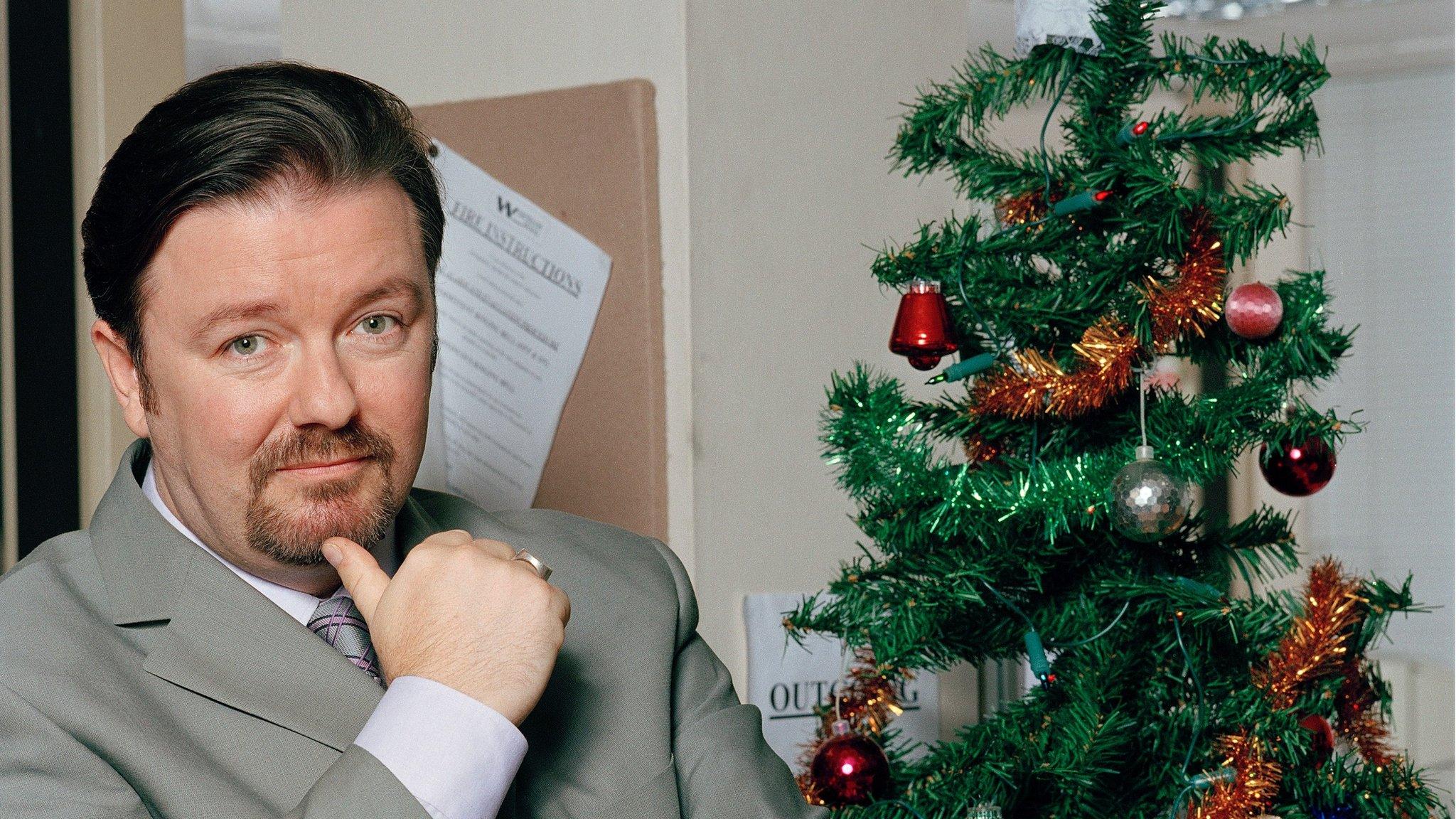
- Published20 November 2014
